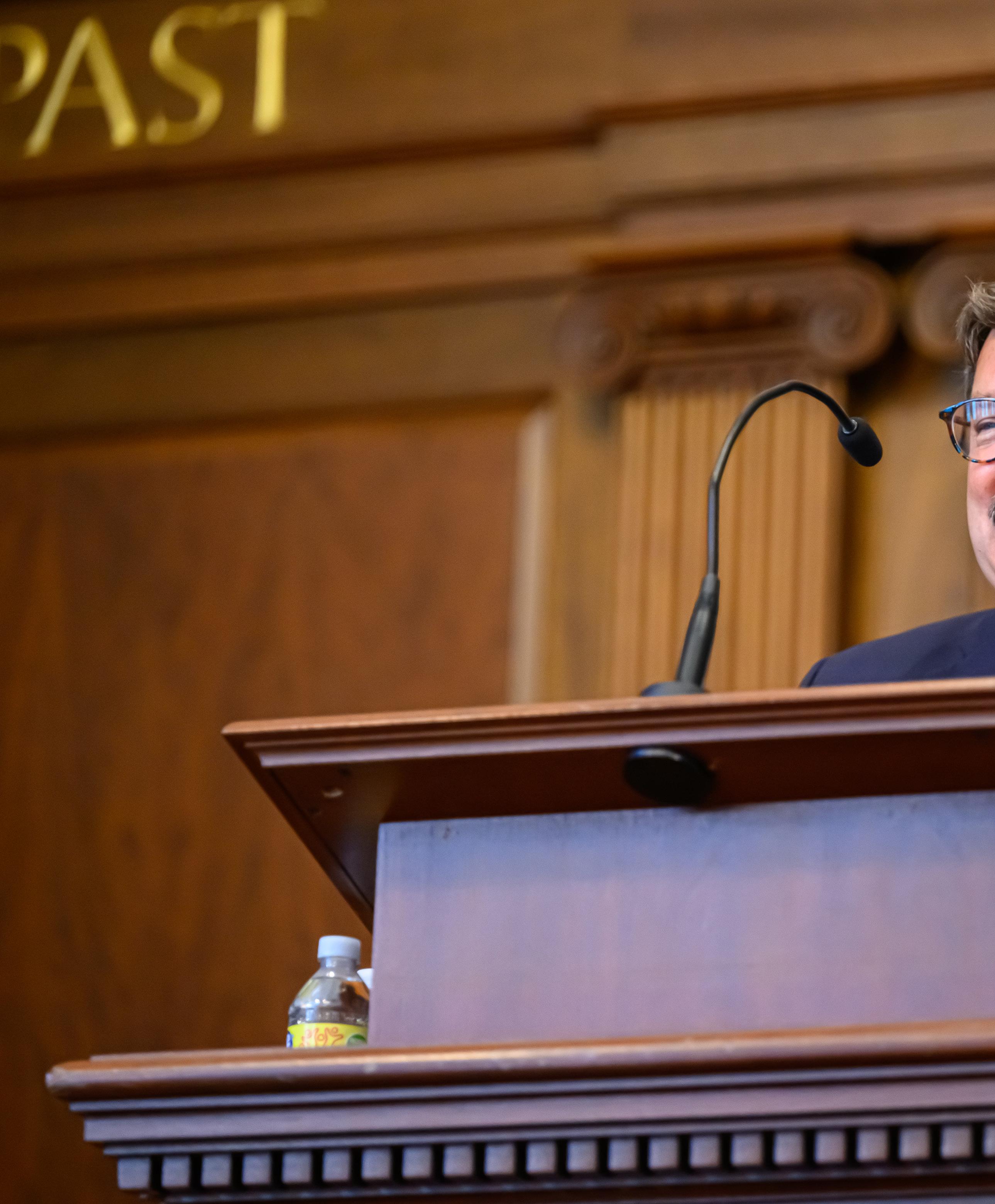
12 minute read
Let’s Live Our Lives Wide Awake
Kerry Brennan Delivers the Opening of Fall Term Address
Late in the summer I got to thinking about my favorite grad school professor at Columbia’s Teachers College who had passed away over the past year. She was Maxine Greene, a dynamo and an inspiration. She was as “New York” as one could get, a lifelong New Yorker who lived and breathed the idiosyncrasies of the world’s greatest city. She had strong opinions, and many of them centered on where one could get the best this or that on the island of Manhattan—matzoh ball soup, bargains on clothing, best upcoming dance company— you get the idea. She was also a remarkable example of talent married to determination, for it was unusual in the middle of the twentieth century for a daughter of Jewish immigrants to aspire to make a life as a professor at a top university and to enjoy a career as a thinker, a writer, a raconteur. This was unheard of for a girl and a woman at the time.
Advertisement
While Professor Greene assigned plenty of readings each week, one never knew in a given class what we were going to discuss. Once a week, for two-and-a-half hours, Professor Greene would convene a seminar of thirty or so of us gathered, and talk about how her life had changed since we saw her last. Because we were immersed in New York, at least for the time we were in grad school, we, too, were aware of political trends, and especially what was happening in the arts—music, theater, dance, film. Each week, Professor Greene, pushing 70, would be brimming with her reactions to something she had participated in since last we met— sometimes a play, sometimes a concert, sometimes a dance recital, sometimes a film. Even if few (if any!) of us had had the same experience, she eagerly and effectively brought whatever it was to life for us. And that became the jumping off point for us to wonder: to wonder about an avant garde adaptation of an established classic; to wonder about a revival of a beloved musical, this time with a young, up and comer featured; to wonder about the collection of paintings that had been assembled as an homage to a prominent artist of the 17th century, or an artist who was working now. Not only did she present reports about her most current artistic experiences with enthusiasm and specificity, but she insisted that we have something to say about them. She gave us language to express our feelings and our thoughts. She built on our reactions—often challenging them, sometimes affirming them, always caring about what we thought. And
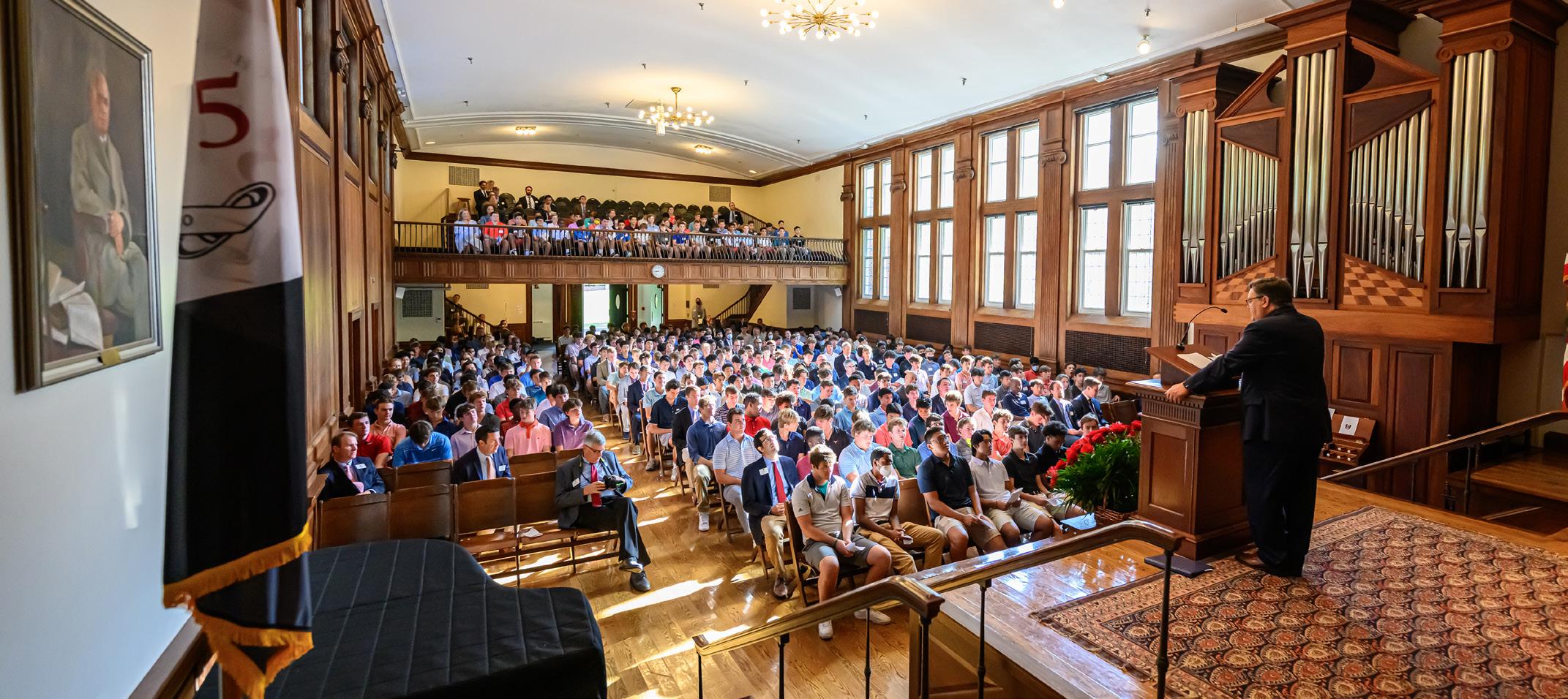
she always acknowledged that her own ideas had changed thanks to our dialogue together. The time would fly, and often we would not get to the assigned reading. But in some ways we always did, because at some point Professor Greene would say, “What would John Dewey say about the new production of Death of a Salesman?” “Would Rousseau have thought that the ballet of Stravinsky’s Rite of Spring captured our essential quest to be free?” “Did the conflicts in E.T. accurately convey humans’ longing to belong, to be loved?”
You get the idea. She was a masterful maestro. She had an idea about what she might talk about, but she always seemed to be pleasantly surprised by the direction in which the class went, amazed at some comments by us, eager to experience again an event that others might have thought as static, a frozen-in-time endeavor. She reminded us that all kinds of things not only live on but find new life in the imaginations and the careful consideration of each of us. One of the two great admonitions of Professor Greene that I want to share with you today is that all of us should constantly be imagining something as if it could be otherwise. In the foreground we might think that was about artistic expression—pushing the boundaries, experimenting with media, juxtaposing divergent entities. But, in fact, she was talking about most of life. Too often— including, I daresay, when we are part of a school that has been in continuous existence for 378 years—we believe that something is established and immovable. Maxine Greene wanted to empower each of us as a problem solver, whether in consideration of our solitary, individual life or on behalf of an organization that someone might lead—to be problem solvers with the license to imagine something as if it could be otherwise. How often in my business do I encounter someone who is reluctant to introduce even one variable, to challenge the status quo? And then, when I might suggest that other elements are also potential variables altering the viability of the first, it blows the person’s mind. This, however, is how all of us should approach life—as a set of related, but not dependent, variables. This is usually the mindset when any progress occurs—whether it’s in inventing a new widget, the electric light for example, or it’s determining that one’s tried and true method of studying is just not doing the trick, and all your suppositions need to be blown up. Imagine something as if it could be otherwise.
The other lasting suggestion that Professor Greene constantly offered us is that we approach our “intellectual odysseys,” and, in fact, our lives, wide awake. She insisted that we commit to being wide awake.
There is for some of us the real, practical, physical challenge of staying and being wide awake—the chronic sleep deprivation of teenage life, or attending an event at the end of a long day. Everyone should be mindful of the need for a good amount of sleep, and we should organize our days and will ourselves to ensure that we are able to get
done what we need to do in good time, so we can get to bed at a reasonable hour. I know, however, that sometimes that noble idea seems impossible to realize.
The wide awake that Professor Greene meant, and the one about which I will expand this morning, however, has to do with a different wide awakeness than simply willing ourselves not to fall asleep. It has to do with being alert to our world; to what others are saying or doing; to altered, dissonant data that changes our perceptions, our realities, our truths; to not sleepwalk through life. Today I want to suggest a few instances of wide awakeness as we start a new school year, as we embrace the idea of education as a broad, challenging, satisfying enterprise, and as we make our way in a world that is complex and often delightful.
Be wide awake to opportunity. How often we tend to take for granted what it is we’ve been given, our surroundings, the people who constitute our circle. I submit that each day we should assess what constitutes an opportunity—to learn something we had not known, to befriend a person we thought was strange, to extend ourselves to try something—like a sport or a play—that’s different from our usual pattern and is hard, and in doing so we are exposing a vulnerability. But opportunities exist in even greater abundance beyond school. Do we pay attention when we receive an invitation to apply for an internship, or a research grant, or a scholarship? Do we get excited when there is a chance to travel, or to join a group of new people on a political campaign, on behalf of a social cause, or a service need? Are we willing to travel to another part of the country to assume a new professional position?
Be wide awake to our gifts. You have heard countless times how essential it is to share what you have been given. Again, within the school, you know the Handbook and our creed admonishes to put one’s talents to good use. That responsibility is linked to our generalist philosophy and the need not only to share what you have been given, but also to do your part. Each of us is capable of being selfish, of guarding our time and our personal priorities, but all of us are better for time and talent freely shared. It seems that there is a twofold suggestion here: First recognize your gifts, your potential, and then, share those freely. Be wide awake to injustice. We have been reminded over the past few years of the fact that the United States is not as evolved as we would hope, when it comes to ensuring that all people are treated fairly. Again, let’s start here: What happens when a classmate is picked on, when the kidding is relentless, and it’s clear that the boy is no longer taking pleasure in the tone of the peer group? Be wide awake to the fact that you need to do something to change the tone, to defend the offended kid. Be an active, conscientious bystander, and not an apathetic or acquiescing one. You need to be alert when adults, I would hope inadvertently, nonetheless, lay it on too thick. I know personally that sometimes sarcasm, for example, can go too far. Or that causing a boy and his habits to be notorious in a given class or on a given team demeans and discourages. Bother to have a quiet conversation with an adult about what you undoubtedly correctly feel to be too much. Finally, be wide awake to patterns of unfairness or discrimination that tend to treat someone unfairly because of the group to which he or she belongs. Too often race, ethnicity, gender, sexual orientation, social class, ableness tend to be easy targets—simplistic ways of categorizing, generalizing, leaving out, and exaggerating differences. Be wide awake to systemic failures that preserve income and lifestyle inequality, and also discriminate against certain people when it comes to the law or social mobility. Work hard to eradicate these instances.
Be wide awake to beauty. Not all of us have broad vocabularies when it comes to beauty. We are in the process of understanding certain formal aspects of beauty in the arts, for example. But beauty is mainly what you feel. In a sense, you know it when you see it. I find that my own sense of beauty is enhanced by my greater understanding of what is at work in the experience—a musical piece, a work of art, a lyrical poem, but also emblems of nature at its best in breathtaking settings that prove memorable. As you know, 54 members of the Glee Club toured Austria and the Czech Republic last spring. We had the chance to visit and come to know lots of interesting places—some historic, some authentically cultural—and some interesting people. Most meaningfully, I think, was that we were able to perform our music in settings and for people that we could not have imagined. After a performance in one of the world’s great churches, a boy came up to me and said, “I can’t explain it,
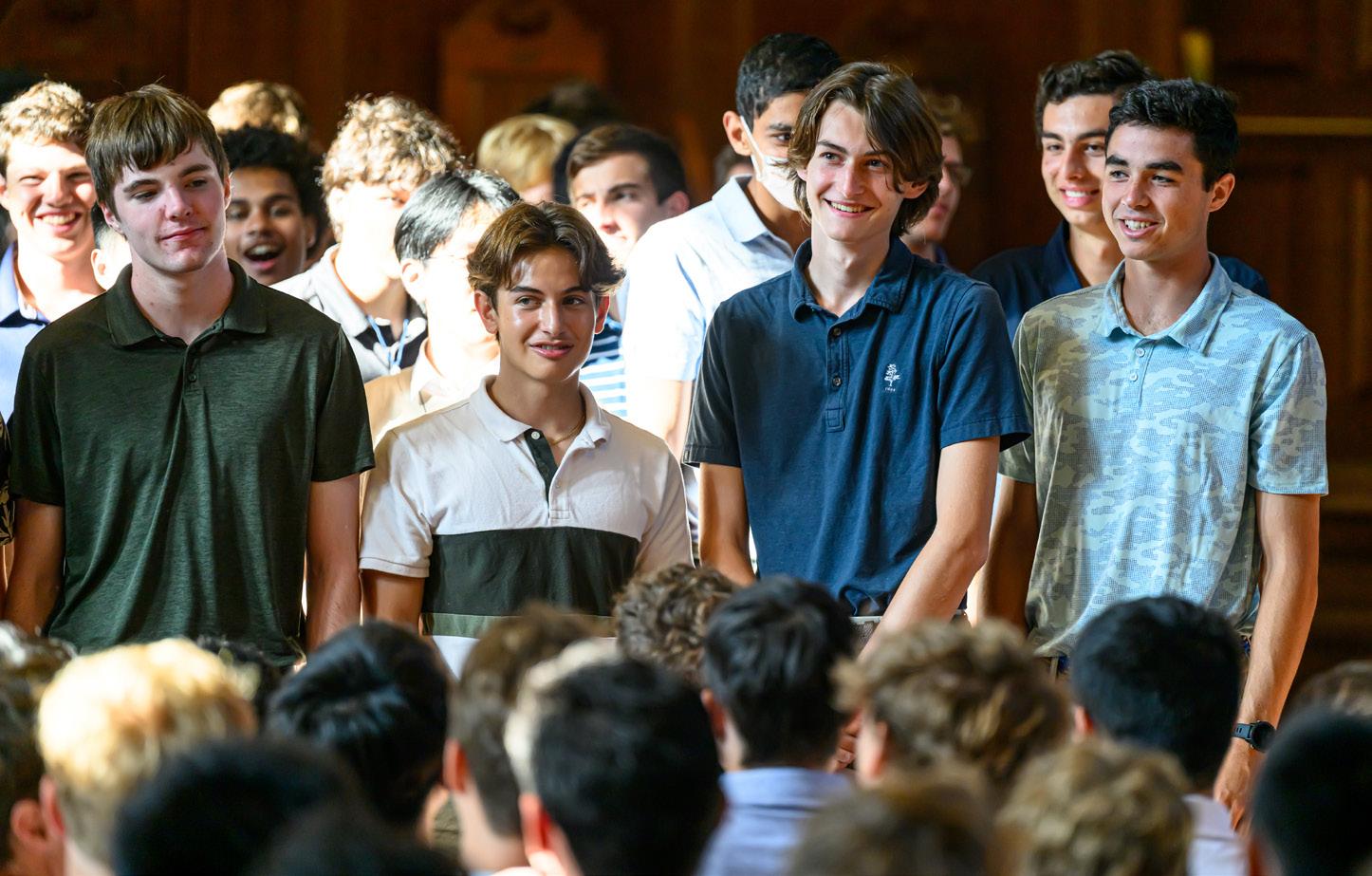
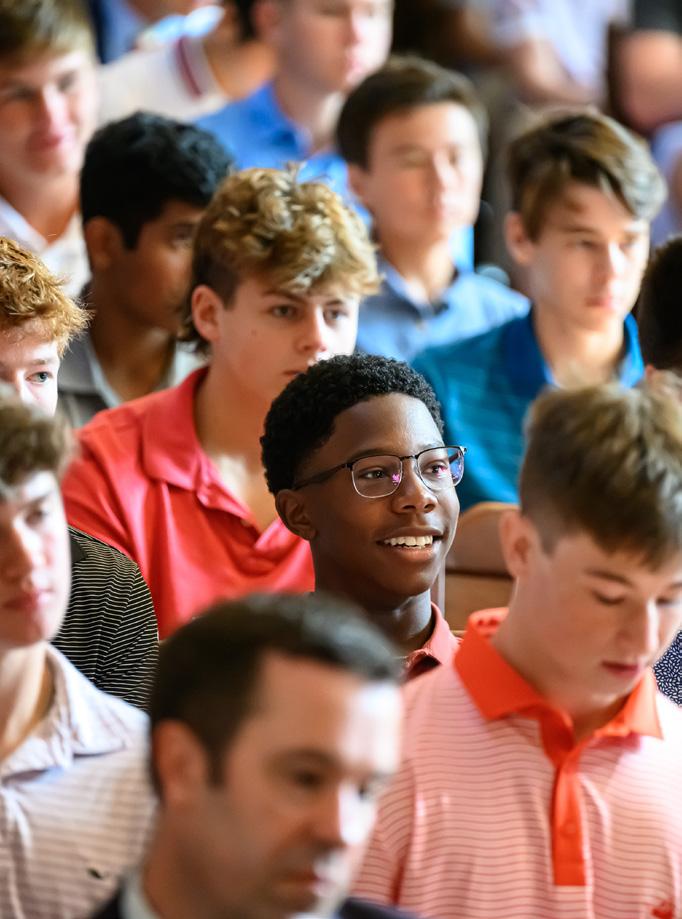
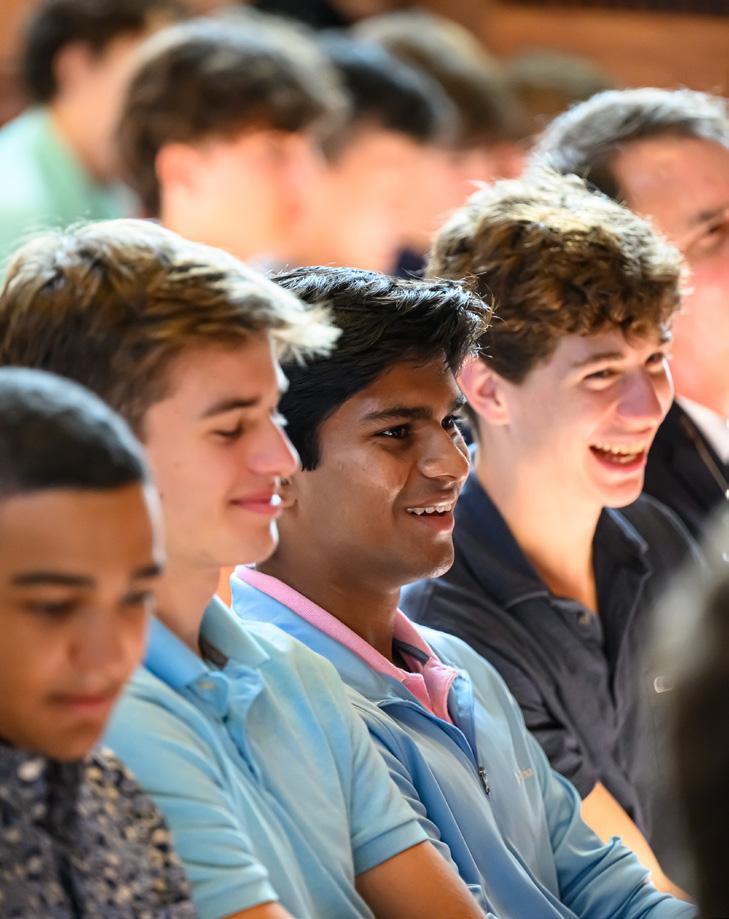
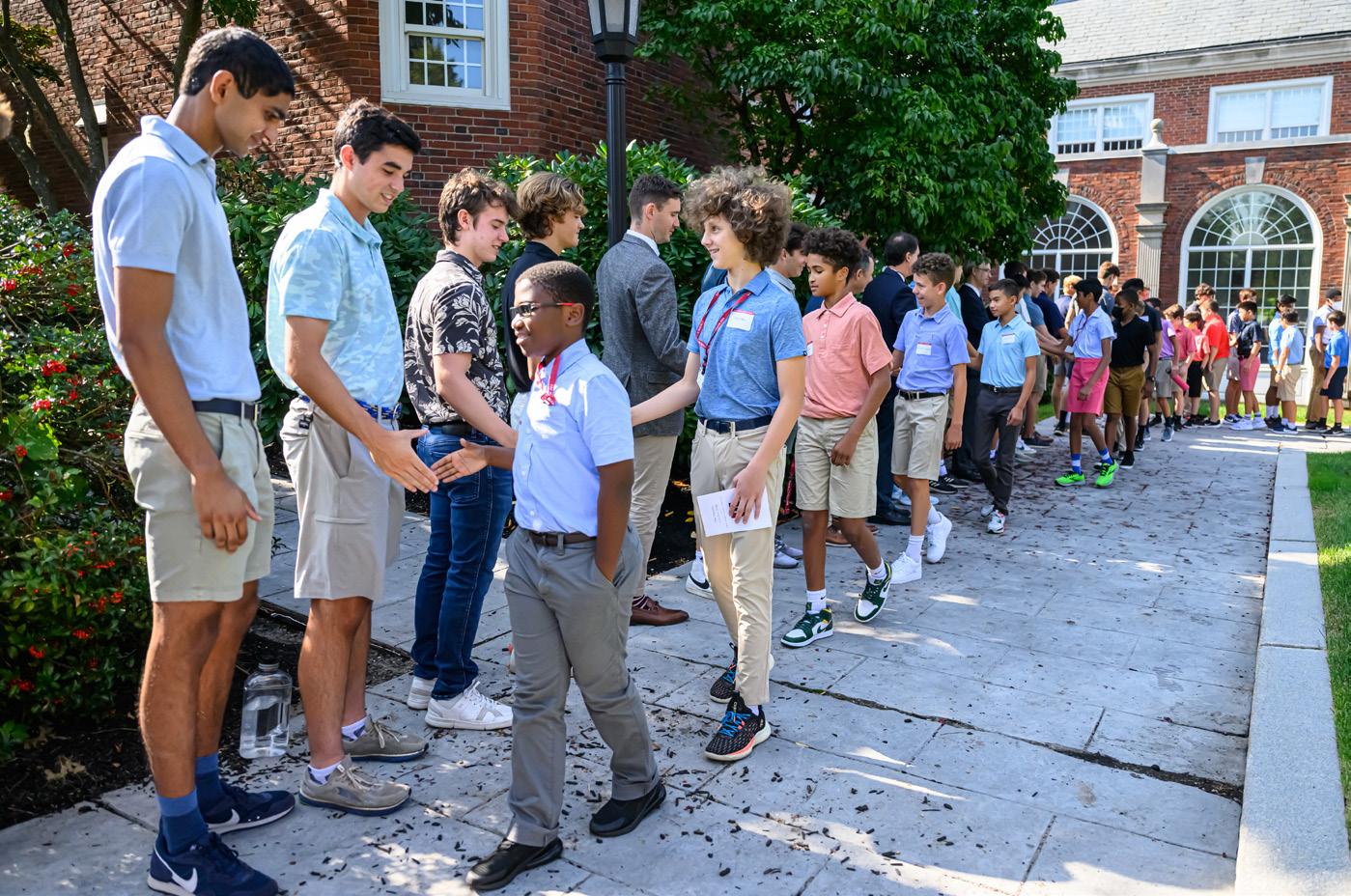
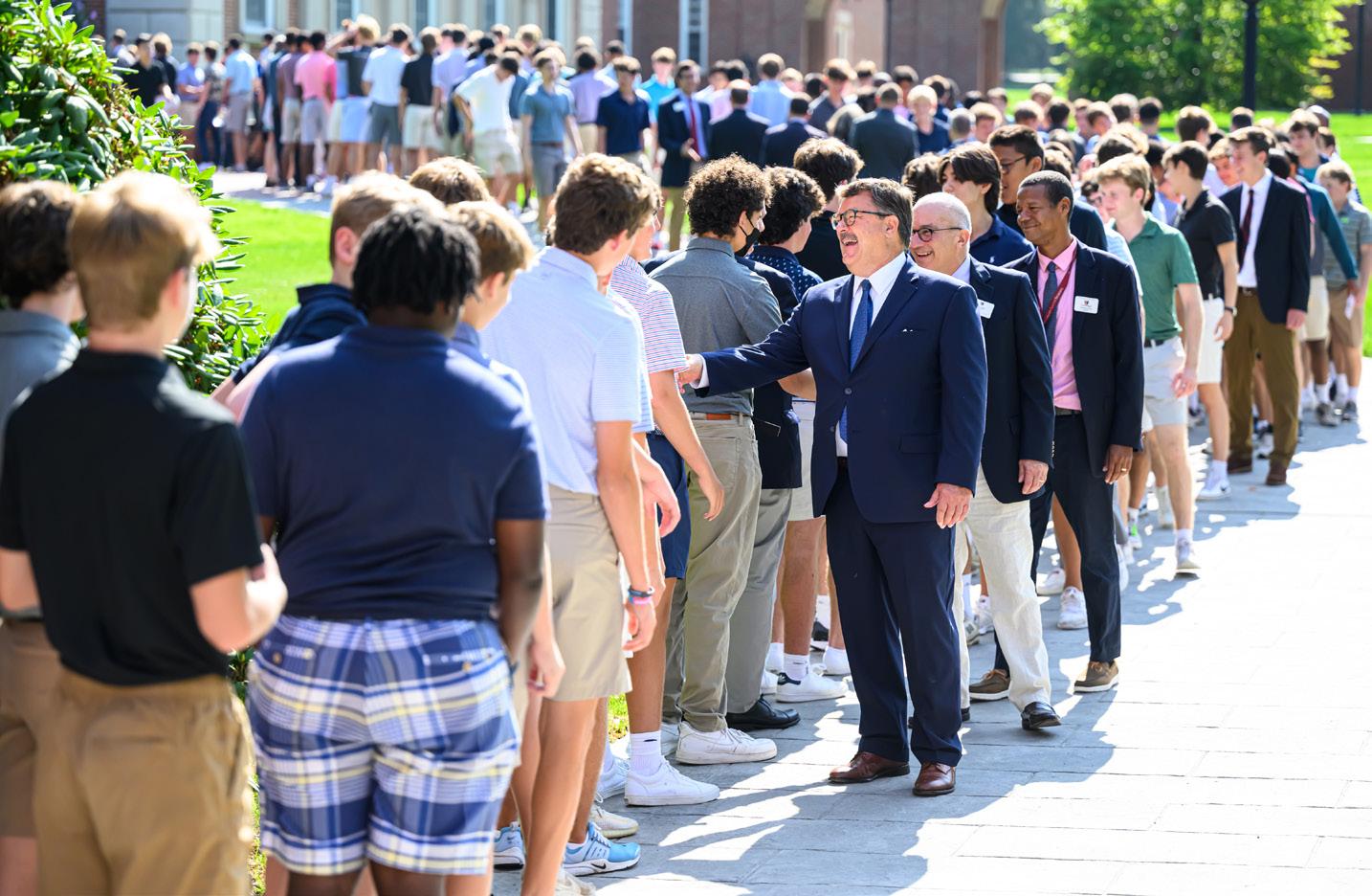
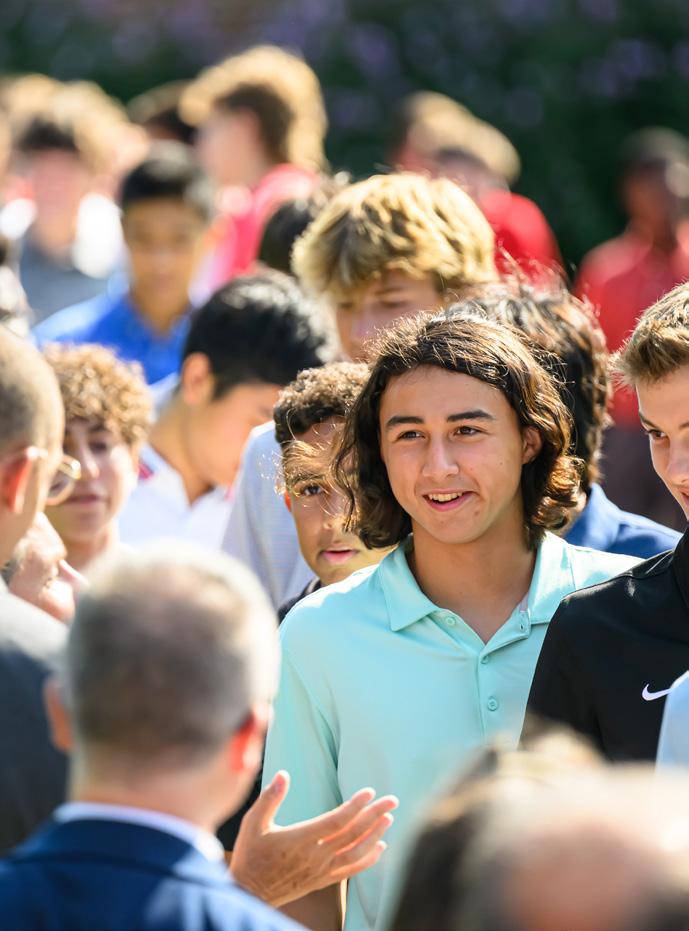
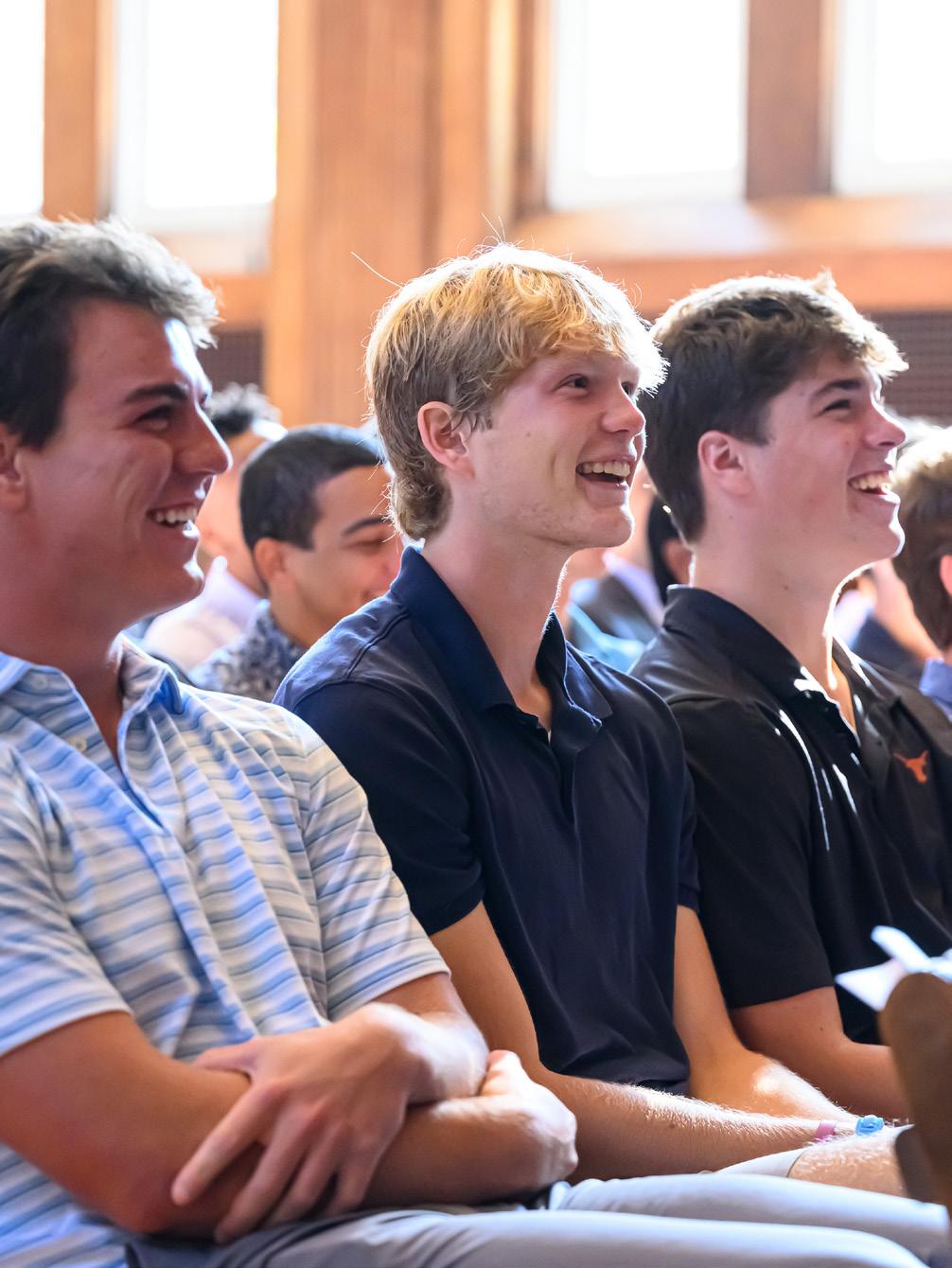
but I was really moved by that. I thought we sang ‘O vos’ as well as we ever had. The echo in the church must have been eight seconds long. But when I looked up at the rear window, the rose window, I couldn’t believe that we were there doing that thing, all together. And I couldn’t believe that sometime way back people had joined together to build that place, so beautiful and so resonant. I realized I had experienced something special. And it made me want to do it again. Maybe in some other places like that.” We are often moved by beauty—from exquisitely simple things, to complex monuments, to artistic expression. Look for it everywhere. Cherish it. Remember it. Be wide awake to all the places where beauty makes our lives more meaningful, more pleasurable, and where we are connected to ideas and people in the past and in the present. And where possible, participate in making beauty yourself.
Be wide awake to your authentic self. Many of you have participated in experiences in which you have been reminded of the masks we wear, the ways in which we hope to disguise who we really are, and instead pretend to be some celebrated, homogenized ideal. The beginning of a school year—or, better yet, the beginning of a career at a new school—affords a real opportunity to recreate yourself. Too often we get stuck in roles and personalities that might seem desirable in how we project to others and make them like us, or respect us. But often we are frauds. We fail to acknowledge to ourselves who we are, and therefore we fail to signal our authentic selves to others. Listen to your inner narratives, dare to project them, and to grow into the person each of you was meant to be.
Be wide awake to the possibility of doing the extraordinary thing. Exhibit kindness in a situation and on behalf of someone who is mainly forgotten. Sit with a different group of people at lunch, or include the boy who is alone. Launch a service initiative that speaks to a deep commitment to helping others and isn’t just a résumé builder. Show bravery in daring to do the unpopular thing. Tell the truth when everybody else is lying. Resist the urge and the fashionable impulse to feel victimized. Imagine what you can do to improve a situation rather than just conveniently blaming someone else. And, if you can get around to it, cure cancer.
Be wide awake to the opportunity to love—first yourself, and then others. We have all read countless stories about someone falling in love. That, of course, is a wonderful thing, and I wish for all of you the wondrous gift of that kind of love. But I also hope you will act on love more broadly defined, in which your care and your sense of responsibility extend meaningfully to others. Love yourself, love your family, love your friends, love your teachers and coaches. And love the stranger. Even when you don’t yet have the benefit of knowing what makes a person tick, give him or her the benefit of the doubt, and exhibit warmth, and welcome the possibility of a burgeoning relationship.
Remember Maxine Greene’s admonitions. In thinking about how we might imagine something as if it could be otherwise, think of ourselves. Now would be the chance for you to reimagine yourself. Make new priorities. Project a different set of values. Open yourself up to new friends or a different group. Try something new. And especially, be wide awake to the world. Take it all in. Process it robustly. Dare to change your mind. Listen to your head, but, especially, listen to your heart. //








